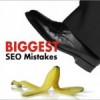This is a guest post by Brian Scott who writes at FastCashFreelance . If you want to write for us then see Join DTP. When it comes to selling a product , nothing is more important than the quality of the product itself. If you have a good product, pitching it and attracting word-of-mouth advertising will be easy. Customers will recognize that it has intrinsic value as a product, and they will purchase it and spread the word to their friends .
However, when it comes to selling that same product, the next most important thing is the quality of your sales pitch. Even if your product is excellent, you won’t get a lot of word-of-mouth advertising unless at least a few brave souls are willing to purchase the product initially to kick things off. And the only way that will happen is if you persuade them to. And that’s where copywriting comes in.
Speak to Your Audience
If you ever hire a top-notch copywriter (i.e. the ones who charge hundreds or even thousands of dollars per page), one of the first things they’ll ask you to do is to procure some market research about your segment—or to help them to conduct that research.
The purpose of this research is simple. In order to write good copy, a copywriter needs to speak directly to her readers—not to “readers in general.” This means you must know something about your prospective buyers: their ages, their tastes and preferences, and their nationalities, for instance.
You will want to know where they come from, what they want, and—most importantly—why your product would be a good solution to a problem or problems they have. Without having this information, your chances of writing compelling copy are poor.
With this in mind, think hard before you start hammering out your first headline. Think about your target group, their desires, and the particular problem that your product solves. Make sure you address it succinctly and clearly in your headline.
Use Psychological Trigger Words
When it comes to writing a winning headline, few things are more important than psychological triggers. These are words that evoke a positive psychological response in your readers, independently of whatever is said about your product.
As an example, “free” is a psychological trigger word. So, if you’re planning to give a product or service for free, include the actual word in your headline. It will catch visitors’ eyes and lure them to read further.
Another powerful trigger word is “tested.” For instance, you might say something like “This book contains dozens of tested and proven strategies that I have used for years.” This will convey to the reader that your product isn’t just any product; it is one that has been evaluated—tested—by many trials over time.
Other powerful triggers include words like pioneering, surefire, crammed, soar, growth, explosive, secret, scientific, research, breakthrough, truth, unlimited, and special.
So, next time to you write a headline—or even fill in a headline template—remember to employ some of these psychological trigger words, so you can be sure to draw the greatest possible emotional response from your readers.
Read News Headlines for Inspiration
At first, you might not see a clear analogy between salesletter headlines and news headlines, but in fact, it is there. Many of the greatest copywriters use elements of news headlines in their copy; and sometimes even write headlines as if they were news headlines.
To get a better idea of how this works, go to cnn.com or bbc.com, where you can find hundreds of different news headlines each day. What you’ll find is that the “newsworthy” portion of the story is always captured in the headline.
Why is this important? And how does it reflect on your own efforts? It suggests that if you want your headlines to have a newsworthy appeal, then you should craft them in the same way.
For instance, instead of citing a good feature of your product in the headline, cite the thing that is most different. For instance, if a blogger were to announce that your product was finally released, they might say something like “Internet marketer revolutionizes the net with product that optimizes a site for search engine traffic in ways never seen previously.”
In general, focus on the most important benefit—the one that is newsworthy.
Use a Good Headline Formula
It might sound formulaic and trite, but it works. Start your headline with something like “Who Else Wants to Make $700 in the next 3 days?” or “Who Else Wants to Learn the Secrets of a Reclusive Millionaire?” or “Who Else Wants to Become Wealthy Beyond Your Wildest Dreams?” All of these different approaches will work; and they will work because you started with “Who Else Wants to…”
Alternatively, consider starting with something like “What Everyone Should Know About…” This will draw readers in by playing upon their lack of knowledge about what you are going to say. They will think “Well, I don’t know that secret, so maybe I should read on.”
When it comes to headline formulas, you have a lot of options. Pick a good one and put it to use.



